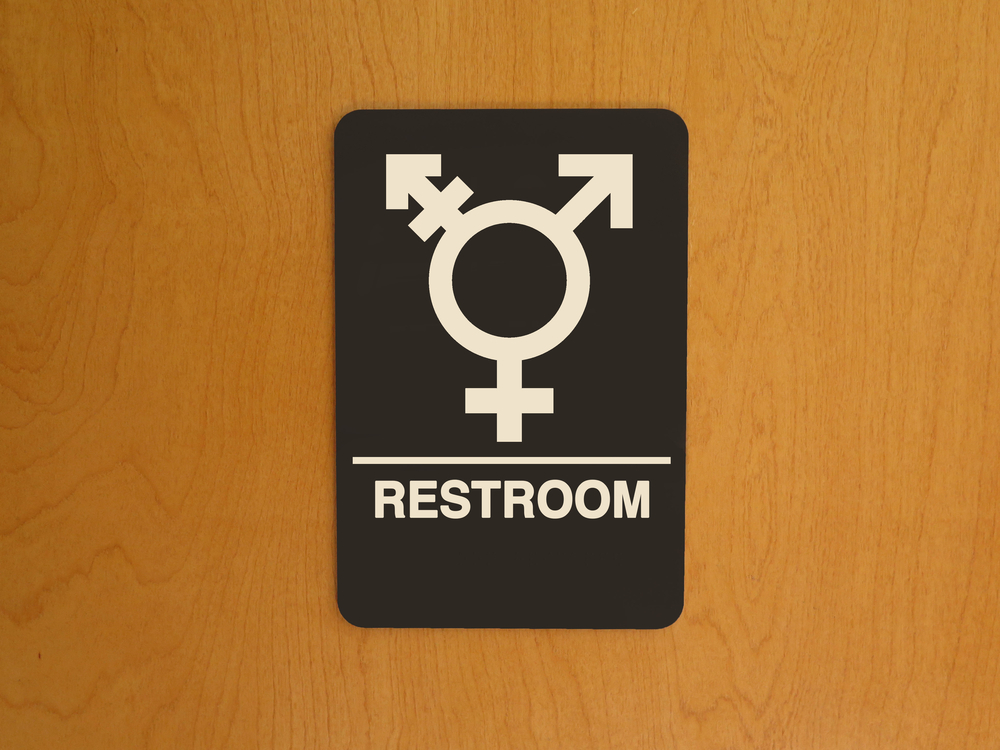
On August 26, 2016, a North Carolina federal judge blocked the University of North Carolina (UNC) from enforcing a state law requiring transgender people to use bathrooms and locker rooms corresponding to the sex on their birth certificates.
With the passage of House Bill 2 (HB2) in March 2016, North Carolina became the first state to ban people from using restrooms consistent with their gender identity in government buildings and schools. News of HB2 stirred up a public outcry, including a Department of Justice lawsuit and the NBA’s decision to relocate the 2017 All-Star game from Charlotte, North Carolina to another location.
Three plaintiffs sued North Carolina Governor, Patrick McCrory, and UNC in March 2016, alleging that Title IX and the Constitution prohibit the state from enforcing HB2’s exclusion of transgender individuals from multiple-occupancy bathrooms, showers, and other similar facilities based on the designation of “male” or “female” on their birth certificate.
Judge Schroeder of the Middle District of North Carolina granted preliminary injunction, enjoining the state from enforcing portions of HB2 as to the three individual plaintiffs. Per Judge Schroeder, the Department of Education’s Title IX guidance defines “sex” to mean gender identity, which is at odds with HB2’s prohibition against transgender individuals using multiple-occupancy bathrooms. However, the court found insufficient preliminary showing of class harm (on plaintiffs’ constitutional claims), declining to extend the injunction beyond the three plaintiffs.
The debate surrounding HB2, and transgender restroom access and discrimination generally, has been playing out nationwide over the course of the past year. In May 2016, the EEOC mandated that employers must provide transgender workers with access to a bathroom that corresponds to their gender identity or risk running afoul of Title VII. The agency issued a fact sheet, reminding employers of its position that discrimination based on transgender status is sex discrimination under Title VII, and that denying access to a bathroom corresponding to an employee’s gender identity qualifies as sex discrimination.
Later that month, the DOJ and U.S. Department of Education issued joint guidance detailing public schools’ obligations to treat students consistent with their gender identity (regardless of sex noted in school records or identification documents) and to allow students to participate in sex-segregated activities and access facilities consistent with their gender identity.
State and local municipalities, such as New York City, have also issued guidance on employers’ duties with respect to issues affecting transgender employees (see our December 2015 blog post discussing this guidance).
Additionally, federal agencies, such as the Office of Federal Contract Compliance Programs (OFCCP), provide unique sets of rules affecting government contractors. See our June 2016 blog post discussing OFCCP guidance Guidelines regarding the extent to which contractors must provide health insurance coverage for “transition-related services” for transgender individuals.
What happens next? The U.S. Supreme Court may have an opportunity to weigh in. For example, on August 3, 2016, the Supreme Court stayed a Fourth Circuit Court of Appeals ruling that the Gloucester County, Virginia School Board could not stop a transgender student from using the bathroom that aligned with his gender identity. The school board’s petition to the Supreme Court is currently pending review.
In the meantime, employers should review their policies and practices with experienced counsel to ensure compliance with this rapidly changing area of the law.

